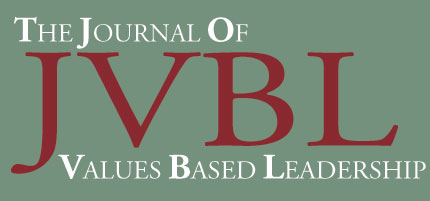- TABLE OF CONTENTS
THE AMISH: AN ECONOMY OF VALUES.
An Interview with Glen Schmucker, Co-owner, HomeStyle Furniture Shoppe
Nappanee, IndianaA rare look into the world of a people driven by hard work, religious morals, and cohesiveness of family and community. This interview allows the outsider to witness America’s true environmentalists using resources and business talents to maintain a sound, simple, and satisfactory lifestyle within their own community.
Shashank Shah & A. Sudhir Bhaskar, Dean, School of Business Management, Sri Sathya Sai University
Anantapur District, Andhra Pradesh, IndiaAs the B.R.I.C. (Brazil, Russia, India and China) countries gain global dominance in innovation, manufacturing, and consumer spending power, it is natural to assume that the pursuit of the “bottom line” would necessarily trump concerns about worker safety and environmental exploitation and would inevitably sacrifice quality in the race to the top. However, one study refutes this rote conclusion. Beginning with the manufacture of a simple, easy-to-use moped in India in the 1980s to launching seven new prototypes in a single day in 2009, Dr. Venu Srinivasan, Chairman and Managing Director of TVS Motor Company Ltd. — a leading company in the 2-wheel automobile industry in India and ranked within the top five in this industry category throughout Asia — demonstrates otherwise in this interview conducted by interviewers and authors, Shashank Shah & A. Sudhir Bhaskar from the School of Business Management, Sri Sathya Sai University, located in the Anantapur District of Andhra Pradesh, India.
WHOLE FOODS MARKET: IDEALISM, VALUES, AND A NATIONAL BOYCOTT
Preface by Elizabeth F. Gingerich, Ed.
An Interview with Roberta Lang, VP Legal Affairs
Whole Foods Market, Inc.
Austin, TexasIn the face of irrefutable statistics regarding this country’s growing obesity rate, the trend to undertake dietary changes which emphasize fresh, organically-grown produce was an idea which gave birth to, and is fueling the expansion of, the Whole Foods Market chain throughout the United States, the United Kingdom, and Canada. The stores support a global outreach program of microfinance and emphasize sustainable practices by purchasing many of their products from local farmers. Only recently, the company’s CEO has sparked debate about his belief that it is the individual who ultimately controls his or her wellbeing through healthy eating. The company’s concept and practices are to be lauded, however, critics point out that these products simply are not geographically available to those in desperate need of a more wholesome alternative and are not affordable for so many others.
Vice President of Legal Affairs, Roberta Lang, stresses that these concerns have not gone unnoticed and that the company works as a series of microcosms, each incorporating local suggestions for continuous improvement.
PHILANTHROPIC INITIATIVES AND THE VALUE PROPOSITION EQUATION
Philip L. Fioravante, Capella University
Minneapolis, MinnesotaBusiness executive with a Private Equity firm, President and CEO of two portfolio companies, Adjunct Assistant Professor at Walsh College (Troy, Michigan), and Ph.D. candidate at Capella University, multi-talented Philip L. Fioravante presents a unique perspective on “formalizing the philanthropic process” to enable companies to realize gains in strategic planning. This is especially important as corporations are increasingly aware of the social scrutiny under which they are viewed by their stakeholder base and within that awareness is the belief that each stakeholder group has varying levels of values and expectations reliant on their unique ethical and moral social science underpinnings.
PERSONAL VALUES AND COMMITMENT IN ACHIEVING GOALS THROUGH THE CULTURAL ORGANIZATION OF WORK
Asep Suryana, M.Pd., Education University of Indonesia
Bangdung, IndonesiaDr. Asep Suryana explores the significance of values-based leadership with respect to the achievement of goals through the cultural organization of the workplace. His research indicates that such leadership helps realize organizational goals through attitude, discipline, quality, and labor relations and that a well-run organization is an organization capable of sharing common values and norms among its members.


